Trump steps up using White House as RNC backdrop despite ethical, legal concerns
Chief of Staff Mark Meadows on Wednesday dismissed growing criticism about President Donald Trump's use of the White House as a political backdrop for the Republican National Convention, calling it "a lot of hooplah" being raised "mainly because the convention has been so unbelievably successful."
"Nobody outside of the Beltway really cares," Meadows told Politico Wednesday morning.
Trump and Republicans have steamrolled norms in RNC programming by using the White House and the powers of the federal government in service to his reelection effort, expanding on that Tuesday when Trump, in a surprise appearance, presided over a presidential pardon and a naturalization ceremony inside White House, later shown as part of the convention program, before first lady Melania Trump delivered remarks in the Rose Garden -- where a renovation was finished just in time for her speech.
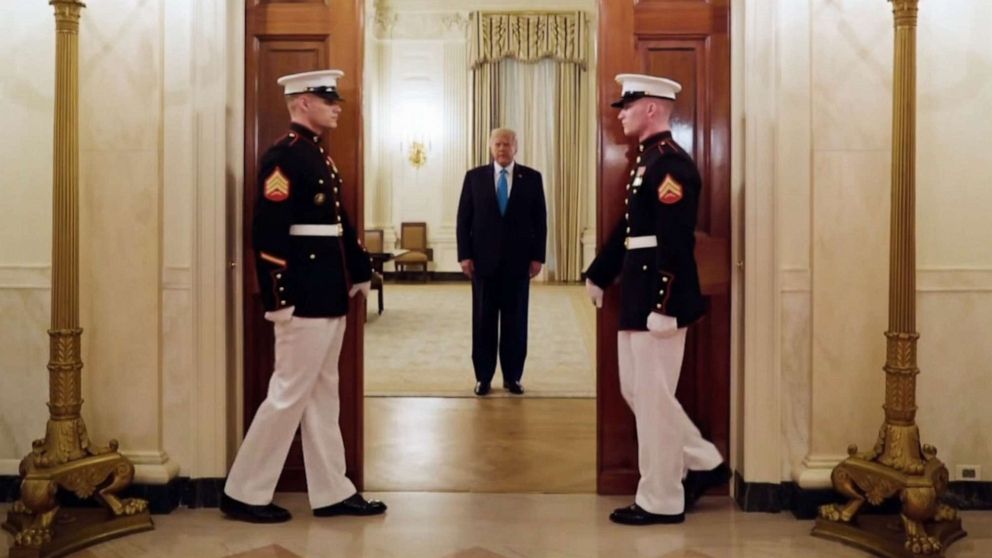
The first lady's chief of staff denied the timing of the renovation had anything to do with her speech.
But Trump administration officials sprinkled into the programming also raised concerns about potential violations of the Hatch Act, which prohibits federal employees from using their official authority to affect an election.
In another sign that the line between official government and campaign business has been breached, the Trump campaign confirmed to ABC News that White House press secretary Kayleigh McEnany will speak at Wednesday night's program.
McEnany, whose salary is paid by taxpayers, is just the latest White House official to be announced as a speaker at this week's convention pushing to re-elect the president. Secretary of State Mike Pompeo, Director of the Economic Council Larry Kudlow and acting Homeland Security Secretary Chad Wolf have already made appearances.
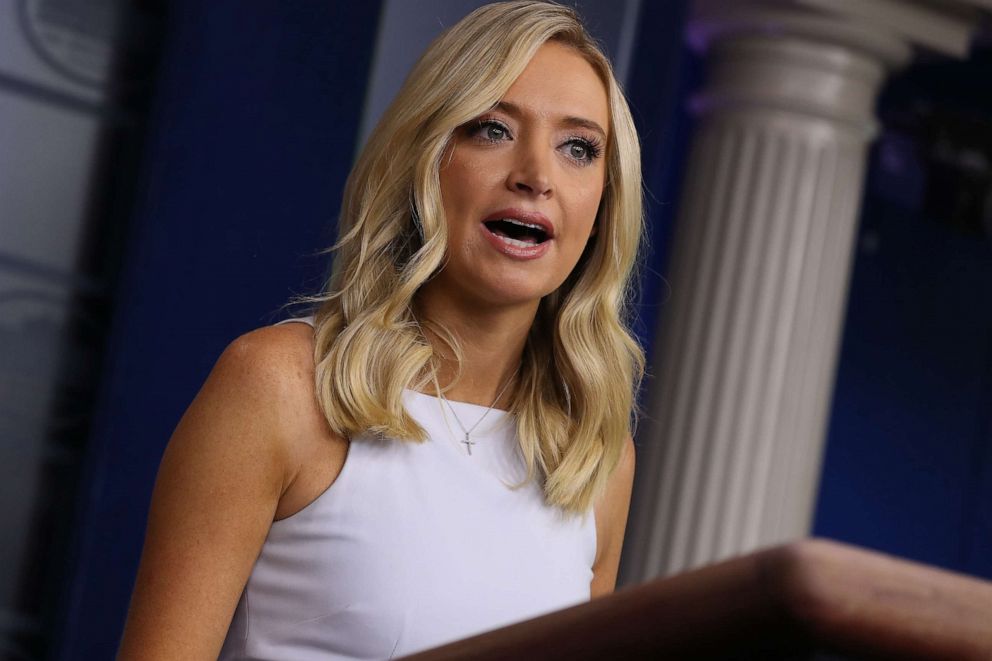
House Speaker Nancy Pelosi on Wednesday hammered Republicans over their use of the White House during the convention and slammed Pompeo’s decision to speak at it during an official trip abroad, both of which she called “illegal."
“These people are so unethical," Pelosi said on a call with reporters. "The committees will make their decisions about how they go forward on Pompeo. We also have an issue with Pompeo, for not giving us documents... so they've been in violation on many scores. But this is really pathetic."
Rep. Joaquin Castro of Texas, a senior Democrat on the House Foreign Affairs Committee, has already opened an investigation into Pompeo's participation in the RNC from Israel -- and is seeking more information about any internal legal vetting of the move, whether any staff were involved in the setup for his speech, and if his participation had an impact on planning for his trip to the region.
"It's absolutely unacceptable that a sitting U.S. Secretary of State, America's top diplomat, would use official taxpayer-funded business to participate in a political party convention, particularly after the State Department published guidance that explicitly prohibits such activity," Castro said in a statement Tuesday.
Senate Minority Leader Chuck Schumer added to reporters on the same call with Pelosi Wednesday that Trump will further "destroy" American precedents if given a second term in office.
“This is what we can expect in a second Trump administration," Schumer said. "All the rules, norms, values that have made this country great, Donald Trump will destroy them. He doesn't care. He only cares about himself. The rules are you shouldn't sit in the White House and give a speech at a convention. Donald Trump says, 'I want to do it.' So they do it."
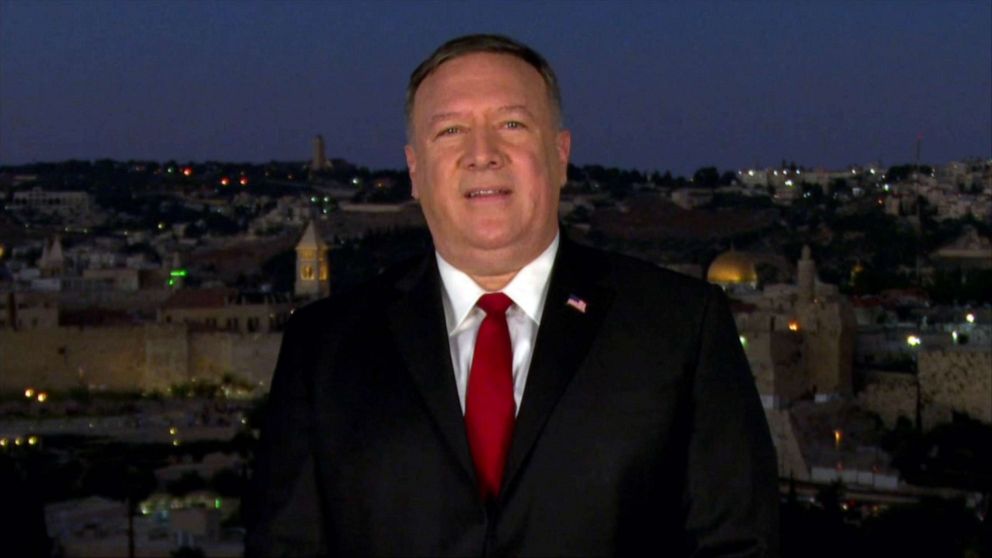
Kellyanne Conway, counselor to the president, is also scheduled to speak Wednesday night and Vice President Mike Pence will address the convention from Fort McHenry, a national monument overseen by the National Park Service.
Julian Zelizer, a professor of history and public affairs at Princeton University, said while it can be difficult for a president to totally separate himself from politics, using the White House as a "prop" at a party convention is unprecedented in recent times.
"There still is a boundary between politics and governing, and the Oval Office and White House are a public site meant for the country that isn't meant to be a political backdrop," Zelizer told ABC News. "To just use it as the major site for a convention speech seems like a lot with President Trump -- you just take all the guardrails down."
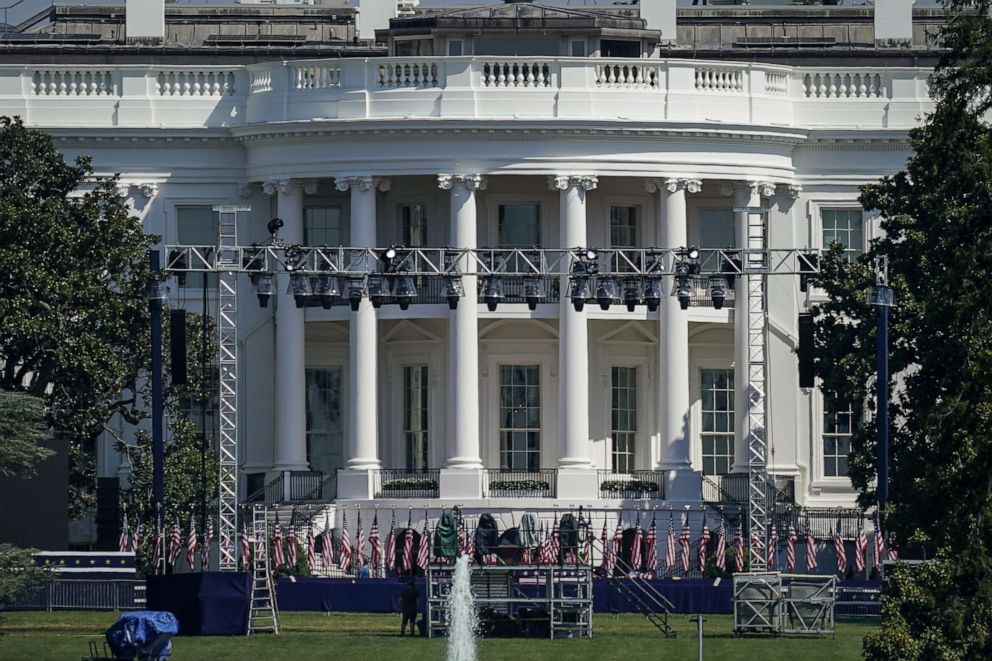
Another high-profile White House employee, the president's daughter and senior adviser Ivanka Trump, is set to introduce her father Thursday before he makes his nomination acceptance speech at the White House.
As the White House and State Department maintained about Pompeo, it has said Ivanka Trump will be speaking in her "personal capacity."
Though the president are vice president are exempt from the Hatch Act, other staffers aren't, and since Trump announced he would make his acceptance speech from the White House, critics and legal experts have knocked the choice to use "The People's House" for such a purely political event.
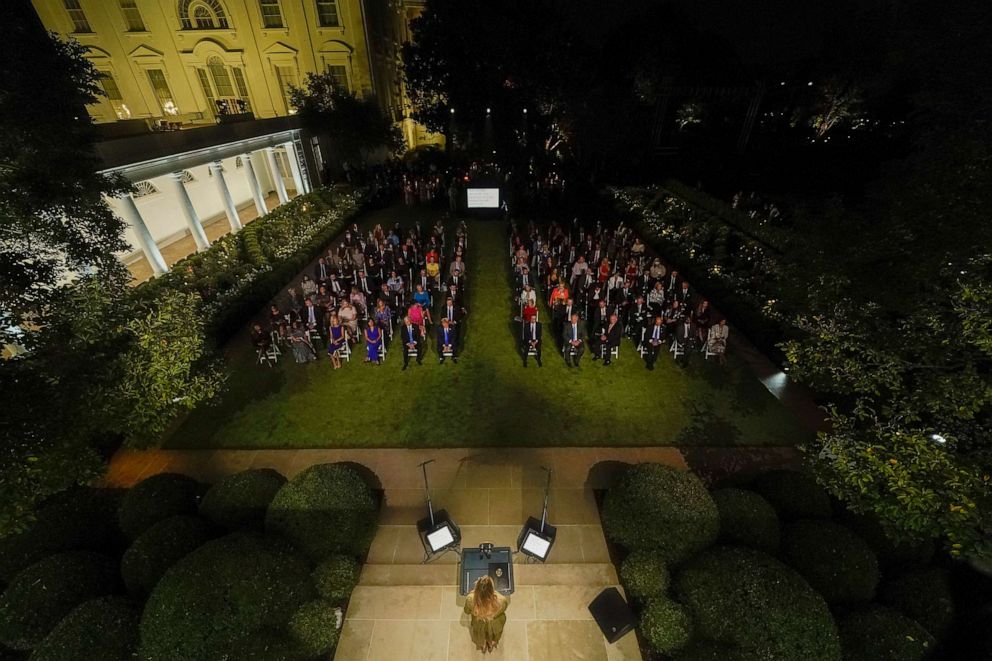
Trump on Tuesday made a surprise recorded appearance less than 15 minutes into the program, shown using the powers of a president to issue a pardon for Jon Ponder, a convicted criminal who credits the help of a former FBI agent for getting his life on track.
The segment highlighted some of Trump's other pardons, suggesting he sees political benefit in them.
In another surprise appearance, Trump was shown presiding over a naturalization ceremony for five immigrants, with Acting Homeland Security Secretary Chad Wolf administering the oath of citizenship. It took place the same day Trump nominated Wolf to hold the top Homeland Security position permanently.
"Thank you for hosting such a patriotic celebration here at the White House today," he said to Trump.
The White House said since the event had been made by being posted on the internet earlier in the day, Wolf's participation was not a violation of the Hatch Act. Marine guards opened two large doors, enable Trump to make a dramatic entrance as "Hail to the Chief" was played.
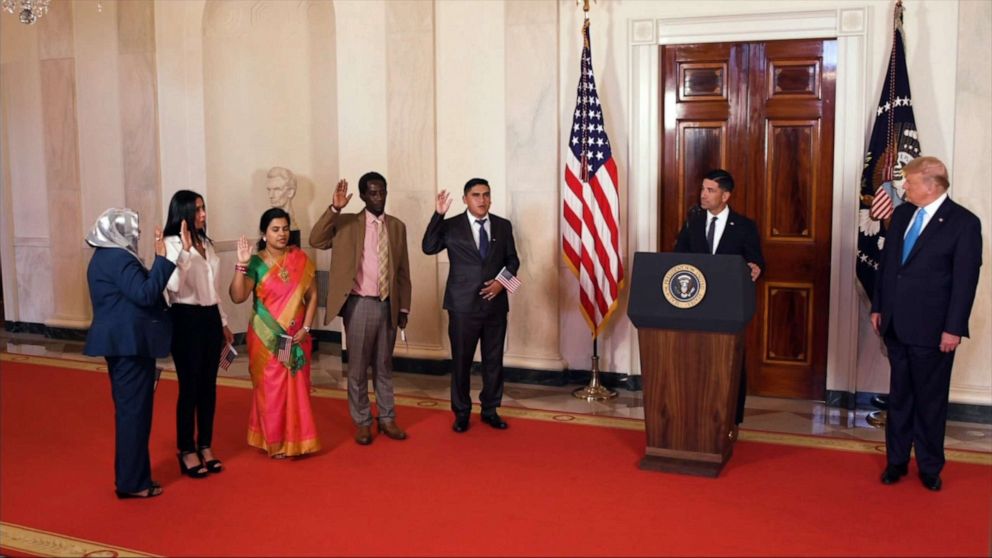
It's unclear how Trump and the RNC chose the five immigrants -- three women and two men of color -- to be sworn in, although Trump made a point of saying they had followed the law, but the scene was in sharp contrast with his overall record record on immigration.
The president ran in 2016 on an anti-illegal immigrant platform, promising to build a border wall and have Mexico pay for it. One of his first executive actions was a travel ban on Muslims. And in a sweeping move restricting legal immigration, Trump in April signed a presidential order temporarily banning those outside the U.S. seeking green cards, and later he extended the ban until the end of 2020, ostensibly because of the coronavirus pandemic.
ABC News' Jordyn Phelps, Ben Gittleson and Will Steakin contributed to this report.



